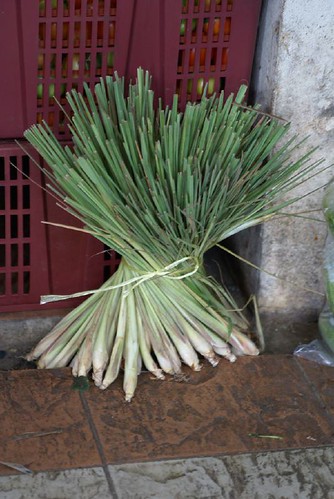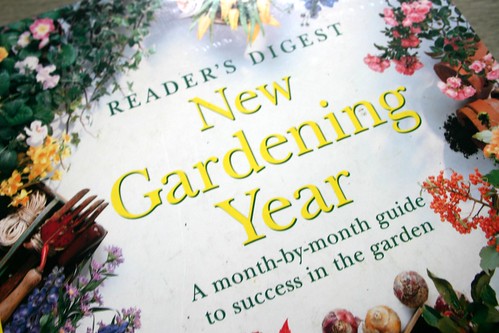Drops – Cymbopogon Citratus Staupf by J.Gil
A long time ago, TheGardenLady received an email asking about plants that help medically. Today TheGardenLady read an article that said that after a five year study Australian scientists have scientifically proven the lemon grass plant Cymbopogon ambiguus may be as good as aspirin when it comes to treating headaches. They knew that lemon grass has been used by indigenous Australians as traditional medicine for the treatment of headaches and migraines. It may be as good as aspirin in the treatment of headaches. See here.
Cymbopogon citratus, Gramineae by EthnoFlora
There are 56 species of Lemon grass. Cymbopogon citratus, not C ambiguus, is the lemon grass that is usually grown in herb gardens. Whether C. citratus helps headaches and migraines, TheGardenLady doesn’t know. But it also seems to have good medicinal properties. Many websites claim that Ben Gurion research on Cymbopogon citratus found that it causes cancer cells to “commit suicide. ” See here. Since TheGardenLady can not find this original research online, but only sites that are selling the product as an alternative medicine, she does not know the validity of this statement. But there is lots of information that the lemon grass Cymbopogon citratus does have medicinal use for digestive problems in children and minor feverish illnesses and can be used externally for ringworm, lice, athlete’s foot, arthritis and scabies. So one might want to grow it in your herb garden and use it in your cooking or creating your on salve to use externally.
C. citratus likes well-drained soil in sun with moderate humidity. You can sow seeds in the spring or buy plants or if a friend has it, divide the plant and plant it in the spring. This site has some interesting recipes using lemon grass.
A vegan recipe for it can be found here.



